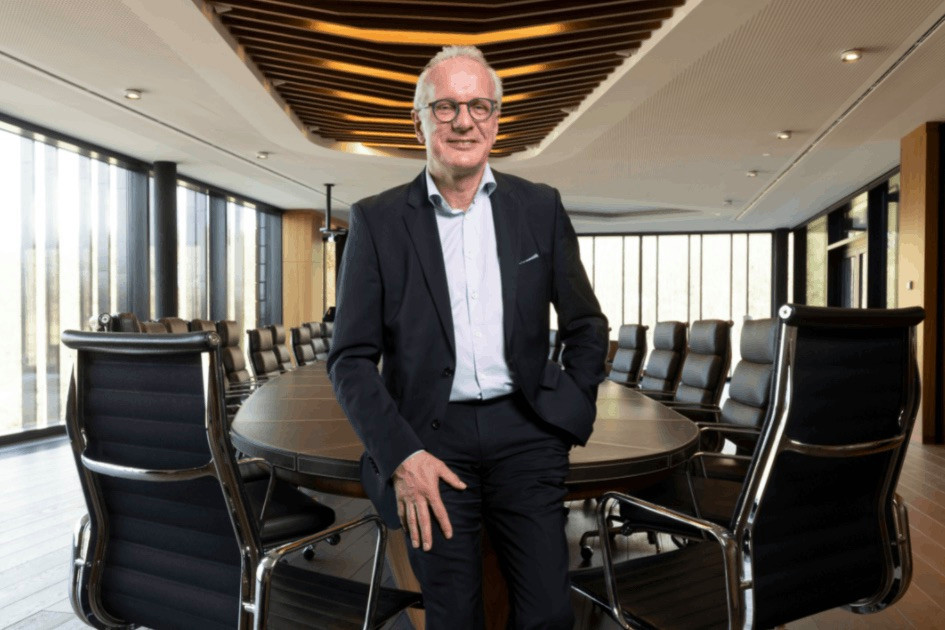Ransomware attacks cost the global economy some $20bn in 2021--a figure expected to rise. Do you think cyberattacks would, at some point, be uninsurable?
Honestly, I don’t know. I just know that, for the moment, the risk awareness of companies, which potentially could be our clients, is very varied. You have those who have invested quite a lot in cybersecurity, [while others are] very naïve… That’s why it gets extremely difficult. Insurance is not a replacement solution for not preparing against cyberattacks.
Then it depends on whom you’re insuring. Sooner or later, some of the risks which individual clients or small companies are exposed to will always be trouble. If you take, nevertheless, big companies, multinationals, the consequences can be very difficult… If a payment system in between banks [is attacked], it’s even more dramatic. There also has to be an awareness of the potentially insured that they have to do something, otherwise insurance will only give limited guarantees for a very high price.
Climate catastrophes worldwide are bringing insured losses of over $100bn, per Bloomberg. How is Foyer adapting with such times?
Despite the fact that we had this flooding in 2021 and the tornado in 2019, Luxembourg is not considered an extremely highly exposed location… On the other hand, it is quite clear that natural catastrophes will arise more often, and their consequences will be more expensive.
Costs will be more expensive. So, again, if this should be insured in the future, there has to be movement in two directions. One is being more prepared to invest in protection measures--for example, for flooding, that’s very clear: you can avoid some of the flooding in readdressing certain issues, how the rivers run, how water can be accumulated, how to quickly evacuate water… But it’s quite clear too that the cost will be much more expensive. If Luxembourg insurance companies have paid over the last four years more than €250m, at the end of the day that also means that the price for insuring this has to be adapted. There’s no way around [that]. The more we’re getting aware that new risks are arising, the more everybody has to invest to avoid these risks, and insurers have to price the risk in the right way.
There’s a role to play for the state, in trying to put as much infrastructure in a way that the consequences of an eventual natural hazard will be limited...
With the elections coming up this year, which issues would you, in the insurance sector, like to see prioritised?
The first topic, which we’ve seen in the whole economy, is the search and the fight for talents. We have to attract more people coming outside of Luxembourg to grant our economic growth. And all these general problems of the Luxembourgish economy, like housing, are also topics which are very interesting to insurance companies…
“We have to attract more people coming outside of Luxembourg”
Over the last years, there have [also] been some tendencies of several countries being a little more restrictive in the interpretation of the common market, protecting a little more their home market, and that’s not good for Luxembourg. We speak a lot about this with our finance minister [Yuriko Backes, DP], who is trying to help us as much as possible. But at the end of the day, it’s the role of the Commission to protect what we consider one of the four basic rights of the common market.
Then we have topics like subcontracting, cloud computing. We’re still in a situation where today’s legislative framework doesn’t really make it easy for Luxembourgish companies to subcontract or to use cloud computing, especially if it’s a subcontractor not in Luxembourg. We’re not living in a level playing field with our competitors in the financial sector--here in Luxembourg or outside Luxembourg. Again, we’re in discussions with the ministry and are hopeful this might change quite quickly…
We have to give Luxembourgish players the right to play on a level playing field with international and national competitors, and we have to make sure that we still attract the labour force to make our business run.
This article first appeared in the Spring 2023 issue of Delano magazine.





